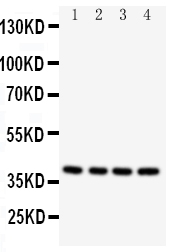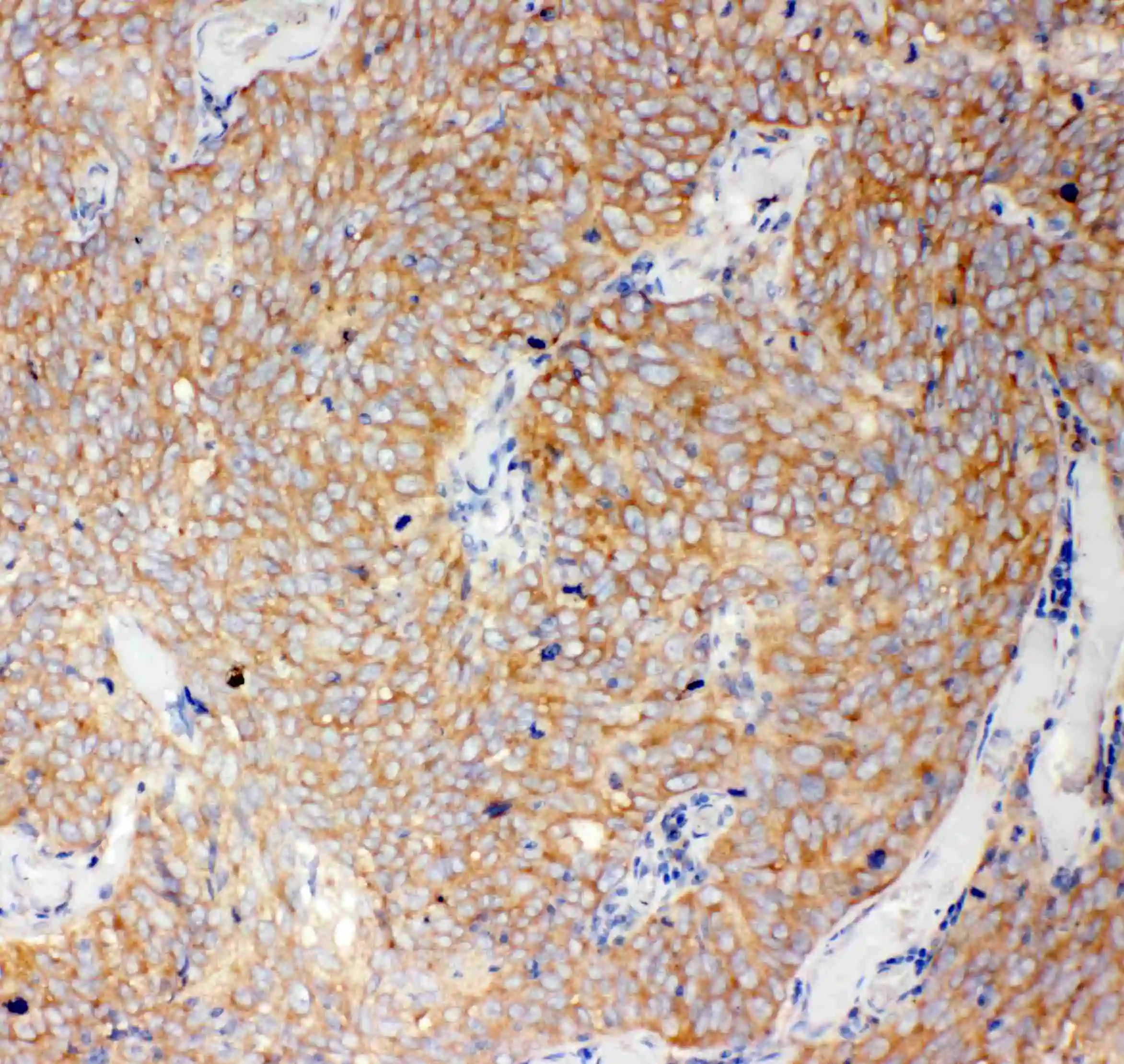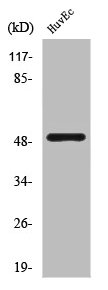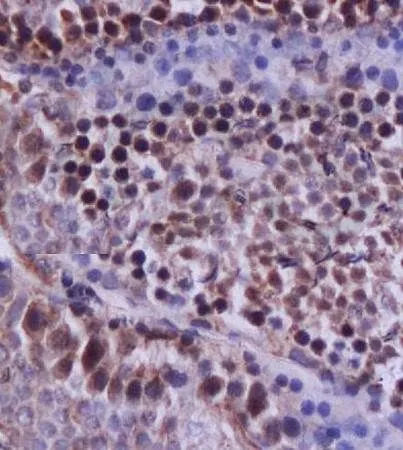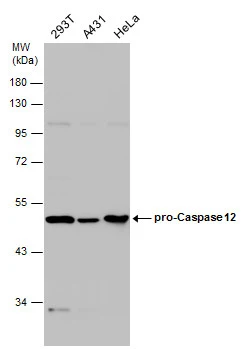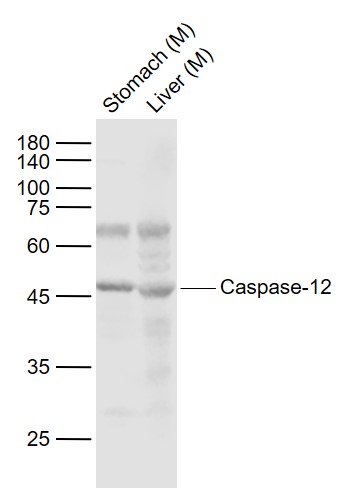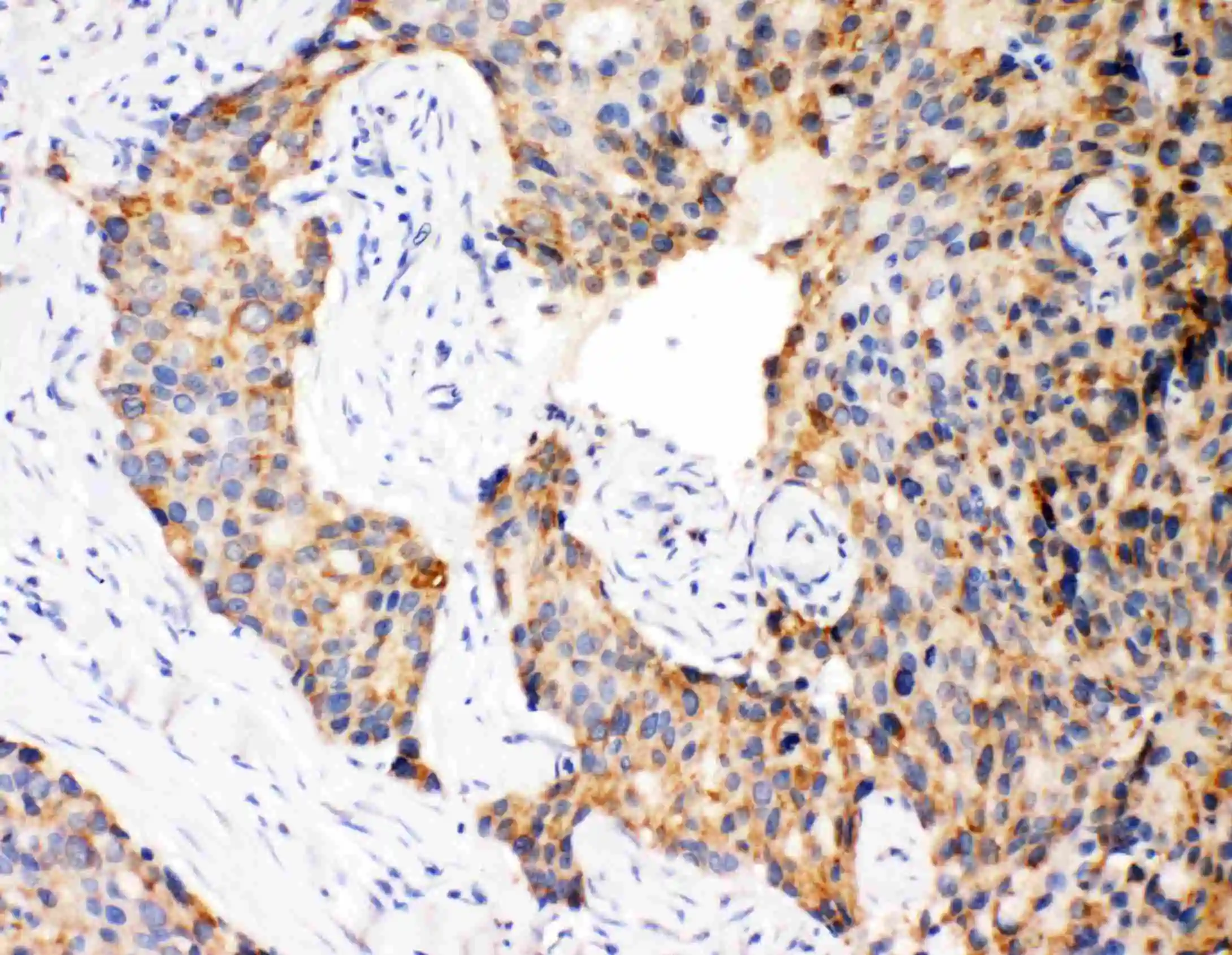
IHC-P analysis of human mammary cancer tissue using GTX12333 Caspase 12 antibody.
Caspase 12 antibody
GTX12333
ApplicationsWestern Blot, ImmunoHistoChemistry, ImmunoHistoChemistry Paraffin
Product group Antibodies
ReactivityHuman
TargetCASP12
Overview
- SupplierGeneTex
- Product NameCaspase 12 antibody
- Delivery Days Customer9
- Application Supplier NoteWB: 0.1-0.5microg/ml. IHC-P: 0.5-1microg/ml. *Optimal dilutions/concentrations should be determined by the researcher.Not tested in other applications.
- ApplicationsWestern Blot, ImmunoHistoChemistry, ImmunoHistoChemistry Paraffin
- CertificationResearch Use Only
- ClonalityPolyclonal
- Concentration500 ug/ml
- ConjugateUnconjugated
- Gene ID100506742
- Target nameCASP12
- Target descriptioncaspase 12 (gene/pseudogene)
- Target synonymsCASP-12, CASP12P1, inactive caspase-12, caspase 12 pseudogene 1
- HostRabbit
- IsotypeIgG
- Protein IDQ6UXS9
- Protein NameInactive caspase-12
- Scientific DescriptionCaspases are cysteine proteases that cleave C-terminal aspartic acid residues on their substrate molecules. This gene is most highly related to members of the ICE subfamily of caspases that process inflammatory cytokines. In rodents, the homolog of this gene mediates apoptosis in response to endoplasmic reticulum stress. However, in humans this gene contains a polymorphism for the presence or absence of a premature stop codon. The majority of human individuals have the premature stop codon and produce a truncated non-functional protein. The read-through codon occurs primarily in individuals of African descent and carriers have endotoxin hypo-responsiveness and an increased susceptibility to severe sepsis. Several alternatively spliced transcript variants have been noted for this gene. [provided by RefSeq, Feb 2011]
- ReactivityHuman
- Storage Instruction-20°C or -80°C,2°C to 8°C
- UNSPSC41116161

